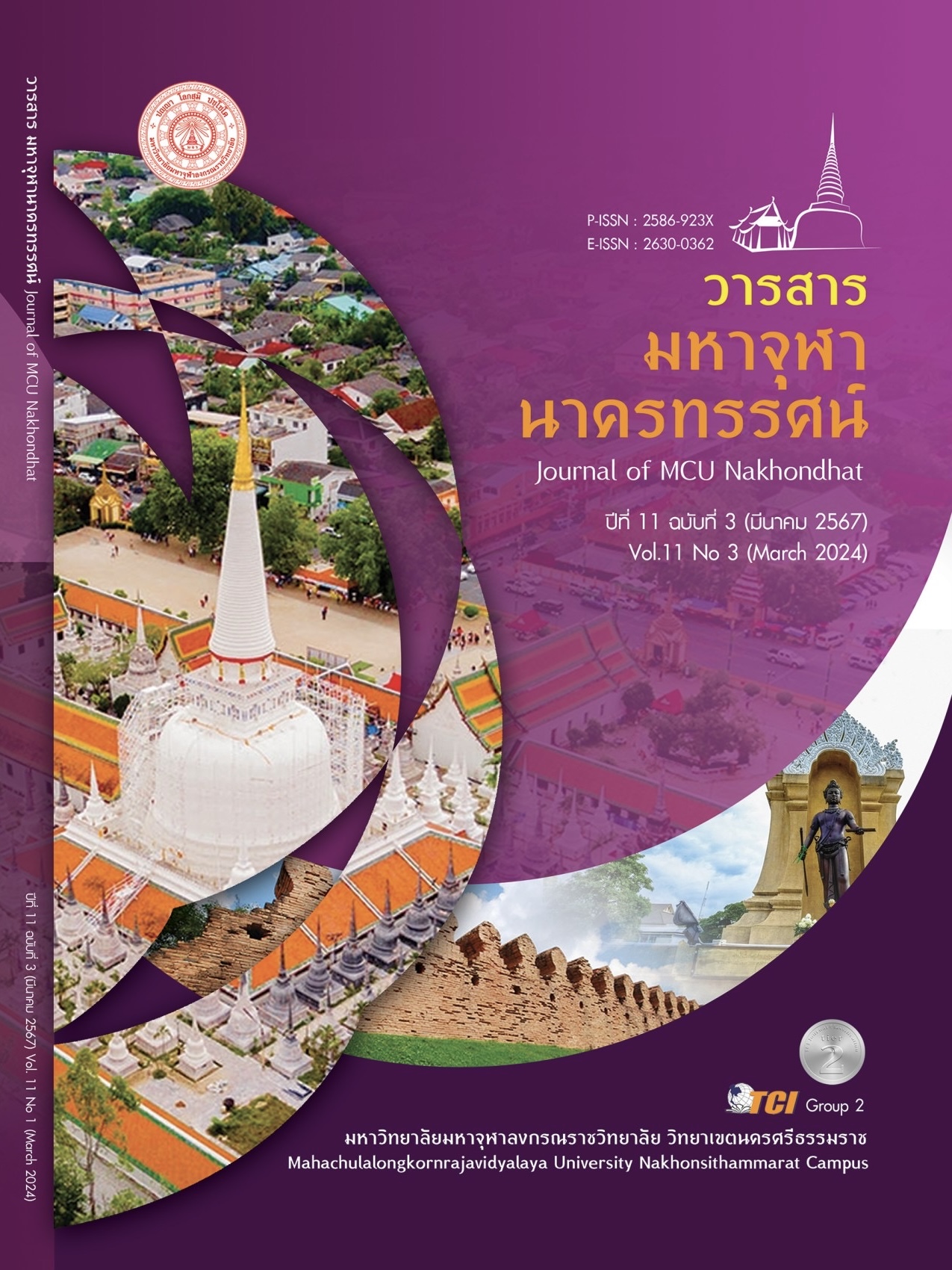MOOCs: A NEW OPPORTUNITY FOR EDUCATION IN THE ERA OF CHANGE
Main Article Content
Abstract
MOOCs or Massive Open Online Courses are a new form of learning that has become important in the digital age. They use information technology to provide people from all over the world with equal access to quality education, regardless of gender, age, education, location, or time. The key features of MOOCs are their flexibility: learners can study anywhere, anytime, at their own convenience; they provide the opportunity to learn from experts from around the world at no cost; they offer a wide variety of courses to choose from, catering to the interests and needs of learners; and they encourage learner participation through various online activities. The role of MOOCs in the digital age is to promote lifelong learning. They enable learners to study effectively, access quality education regardless of geographical or economic constraints, develop new skills necessary for work in the digital age, and create a learning community where learners can connect and exchange knowledge with other learners from around the world. MOOCs have the potential to transform the way we teach and learn in the future. Educational institutions should consider incorporating MOOCs into their educational planning to expand educational opportunities, adapt teaching and learning methods to the needs of learners, and create an open and participatory learning society. This academic article presents MOOCs as a new opportunity for education in an era of change. They are seen as a key to unlocking access to quality education and creating a sustainable learning society that can effectively meet the challenges of the digital age.
Article Details

This work is licensed under a Creative Commons Attribution-NonCommercial-NoDerivatives 4.0 International License.
References
ชโรชีนีย์ ชัยมินทร์. (2562). MOOC: เพื่อการเรียนรู้ตลอดชีวิตในศตวรรษที่ 21. วารสารมนุษยศาสตร์และสังคมศาสตร์ มหาวิทยาลัยเชียงใหม่, 1(1), 46-70.
ณภัทร จาตุศรีพิทักษ์. (2557). วิเคราะห์แนวโน้มการศึกษาออนไลน์. เรียกใช้เมื่อ 30 มกราคม 2567 จาก https://thaipublica.org/2014/10/settakid2-online-education/
ดิจิทัล เอจ. (2560). MOOCs นวัตกรรม การศึกษา แบบเปิดกว้าง ยุคดิจิทัล. เรียกใช้เมื่อ 29 มกราคม 2567 จาก https://digitalagemag.com/moocs
ทัศนีย์ จันอินทร์. (2557). MOOC มุกใหม่ของอีเลิร์นนิง. เรียกใช้เมื่อ 29 มกราคม 2567 จาก https://www. tkpark.or.th/tha/articles_detail/196/MOOCs
ภาสกร ใหลสกุล. (2559). MOOC มุกใหม่ของอีเลิร์นนิง. เรียกใช้เมื่อ 30 มกราคม 2567 จาก https:// examplewordpresscom20163.wordpress.com/2016/03/20/Mooc-มุกใหม่ของอีเลิร์นนิง
ภูชิศ สถิตย์พงษ์. (2564). MOOC: นวัตกรรมการจัดการเรียนการสอนในยุคไทยแลนด์ 4.0. วารสารวิชาการ มหาวิทยาลัยการกีฬาแห่งชาติ, 13(1), 233-246.
วิภา เจริญภัณฑารักษ์. (2558). MOOC: การศึกษาฟรีแบบเปิดในยุคดิจิทัล. วารสารศึกษาศาสตร์ มสธ, 8(2), 1-15.
สำนักงานพัฒนาวิทยาศาสตร์และเทคโนโลยีแห่งชาติ. (2557). MOOC คือ? เรียกใช้เมื่อ 29 มกราคม 2567 จาก https://www.nstda.or.th/th/nstda-knowledge/2622-mooc
Thai OER/MOOC. (2558). MOOC และความแตกต่างกับ e-Learning แบบเดิม ๆ. เรียกใช้เมื่อ 29 มกราคม 2567 จาก http://www.learn.in.th/mooc-diffrence-e-learning/
Wong, J. (2017). Enhancing Self-Regulated Learning in Massive Open Online Courses. Retrieved January 29, 2567, from https://www.educationandlearning.nl/projects/enhancing-selfre gulated-learning-in-massive-open-online-courses


